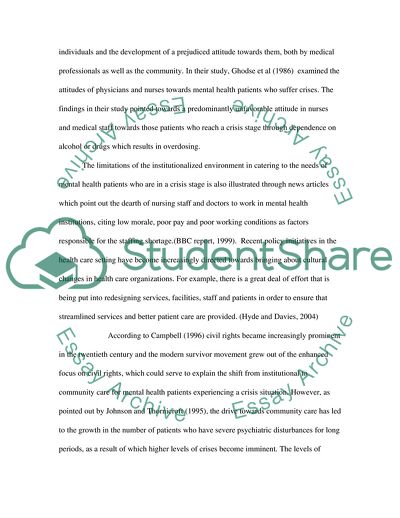Cite this document
(Mental Health Services Literature review Example | Topics and Well Written Essays - 1250 words, n.d.)
Mental Health Services Literature review Example | Topics and Well Written Essays - 1250 words. https://studentshare.org/psychology/1708957-discuss-the-contrasting-views-on-how-support-might-be-best-provided-to-people-experiencing-mental-health-crisis
Mental Health Services Literature review Example | Topics and Well Written Essays - 1250 words. https://studentshare.org/psychology/1708957-discuss-the-contrasting-views-on-how-support-might-be-best-provided-to-people-experiencing-mental-health-crisis
(Mental Health Services Literature Review Example | Topics and Well Written Essays - 1250 Words)
Mental Health Services Literature Review Example | Topics and Well Written Essays - 1250 Words. https://studentshare.org/psychology/1708957-discuss-the-contrasting-views-on-how-support-might-be-best-provided-to-people-experiencing-mental-health-crisis.
Mental Health Services Literature Review Example | Topics and Well Written Essays - 1250 Words. https://studentshare.org/psychology/1708957-discuss-the-contrasting-views-on-how-support-might-be-best-provided-to-people-experiencing-mental-health-crisis.
“Mental Health Services Literature Review Example | Topics and Well Written Essays - 1250 Words”. https://studentshare.org/psychology/1708957-discuss-the-contrasting-views-on-how-support-might-be-best-provided-to-people-experiencing-mental-health-crisis.


